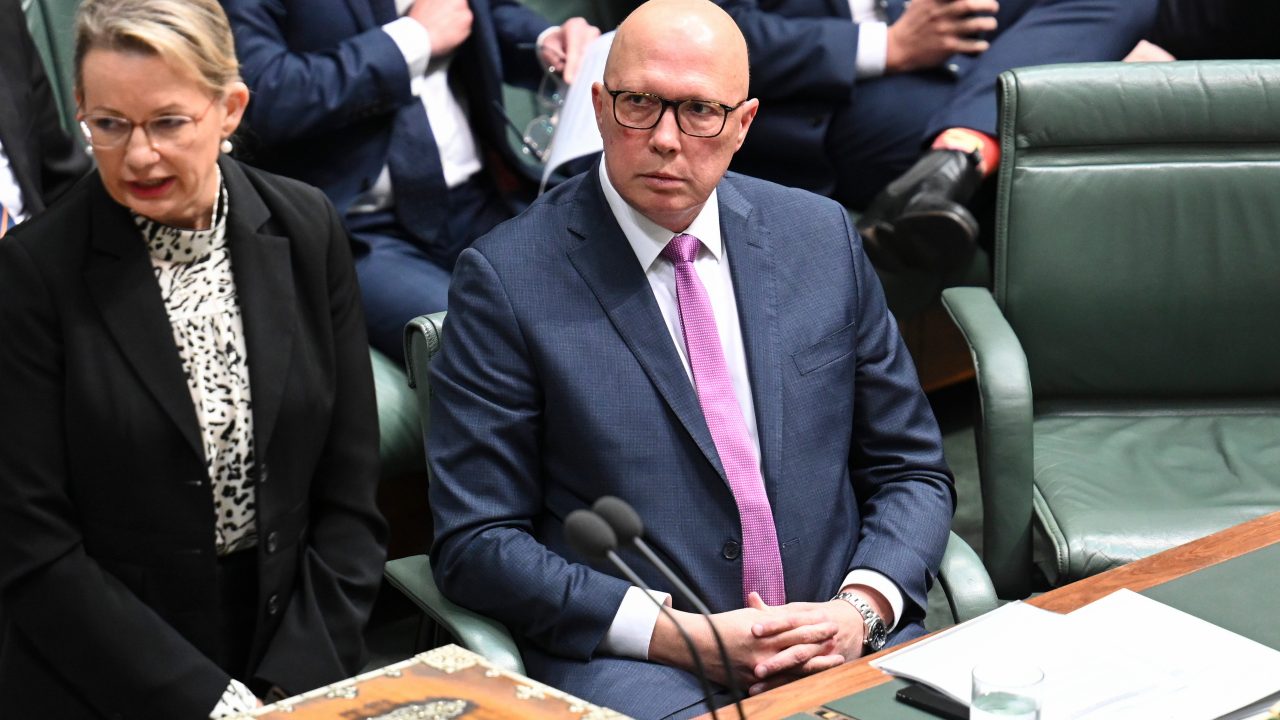James Paterson has defended Peter Dutton’s record as the minister for home affairs as “very strong” while the government attempts to deal with the fallout of its contentious Direction 99.
The soon to be revised ministerial direction came under fire last week after it was revealed it had been used to inform decisions to overturn the deportation of criminals.
The revelation prompted calls for Immigration Minister Andrew Giles to resign, with the minister promising he is working “day and night” to tackle the issue.
Labor attempted to hit back at the criticism by providing examples where offenders were allowed to stay in Australia due to their community ties during the previous Coalition government.
Sky News Political Editor Andrew Clennell put the claims to shadow home affairs minister James Paterson on Sunday Agenda.
“It happened as well under your watch?”Mr Clennell asked, prompting a strong response from the Victorian Senator.
“The AAT (Administrative Appeals Tribunal) is capable of making dumb decisions, but Peter Dutton intervened more often personally than any other minister for immigration or home affairs since Federation and cancelled 6,300 visas,” Mr Paterson said.
“And what is the allegation here? That Peter Dutton is soft on foreign criminals? Does anyone seriously believe that?
“I mean this is a guy who cancelled visas over breakfast in the morning. I don’t think it’s going to be a very successful line of argument to run.”
Mr Clennell then returned to claims made by Prime Minister Anthony Albanese during a press conference on Friday.
“Let me quote the PM to you… he said the previous directions all had… a higher level of tolerance for offenders with long ties to Australia,” Mr Clennell said.
“And under the leader of the Opposition, who was the minister for home affairs, some 1,300 offenders of serious issues were released.”
“What is your response to that?”
Mr Paterson replied by characterising Mr Dutton’s record in the home affairs portfolio as “very strong”.
He also claimed the ministerial directions issued by the previous government “did not put ties to the Australian community as the primary consideration” in AAT visa considerations.
“But the direction under this government did. They elevated this to become a primary consideration,” he said.
“And they inserted new language in that primary consideration which said that regardless of the level of offending, if someone has been here since their formative years then considerable weight should be given to that.
“That’s exactly why you’ve seen very serious violent sex offenders including a man who offended against 26 women and children being allowed to stay in our community by the AAT.”

